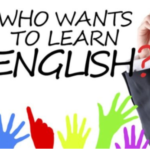Topic 67: Literary education
A literary education has always been regarded as indispensable to the development of character and a broad outlook on life. Whether such an education is preferable to a scientific education is, however, a moot question.
Before the advent of the Scientific Age most scholars pursued a literary education which conferred many benefits on them. It not only gave them an insight into the affairs of the world but also equipped them with a vocabulary that enabled them to express their views and feelings with cogency and facility.
Besides, it developed their mental ability and intellectual powers, and many of the achieved distinction in public life as forcible speakers and writers or even as lawyers and political thinkers. Having discovered the benefits of such an education, ambitious men in all countries proceeded to the universities or other institutions of learning to acquire the advantages of a literary education, and this tendency is discernible even today, though a scientific education is being considered more advantageous to the needs of the present day.

Topic 67: Literary education
The inventions of the modern age have indeed revolutionised society. Numerous goods are being produced, with rapidity unknown before in various parts of the earth with the aid of science and scientists of all countries are continuing to exert their brains to extend the realms of science. Every invention has helped to increase the leisure and convenience of men everywhere, and the demand for goods is increasing everyday. As a consequence, more and more machines are being invented to increase the production of goods within the shortest time possible.
Every mechanical invention, however, has to be operated by skilled men. The larger the machine the more complicated its operation, and any mechanical faults in it can be detected only by men with a scientific education, who are but few in number compared with those with a literary education. It is this scarcity of men with a scientific education that has led to the assumption that a scientific education today is preferable to a literary education. The large factories require men to operate machinery, dealers in motor-vehicles require men for all types of work in the industry, and there are a diversity of other industries which are looking for men with a scientific education. The demand for men with a scientific education is, therefore, great, and this serves as an incentive to young men to acquire industrial and technical skills, for the possession of such skills will not only enable them to secure remunerative occupations but also enable them to manage their own factories or workshops in the future to increase their earnings.
All this, however, does not imply that the man with a literary education is losing his importance rapidly. In truth, he is an indispensable person even today in various departments of human activity. He provides the managerial skill in an industry, contributes his literary abilities to the promotion of literacy in the country, provides ministerial and judicial services in the state, and performs a host of other functions.
Thus, it is not possible to say with finality that a certain type of education is preferable to another. It is for the individual to make the best of the type of education that he has received.
NEW WORDS:
1. indispensable (adj): rất cần, không thể thiếu
2. moot (adj): có thể bàn 1uận
3. equip (v): trang bị
4. cogency (n): sự vững chắc, sức thuyết phục
5. distinction (n) sự ưu tú, sự xuất chúng, sự lỗi lạc
6. forcible (adj): sinh động, có sức thuyết phục
7. discernible (adj): có thể nhận thức được, có thể thấy rõ
8. exert (v): đưa vào sử dụng, áp dụng
9. realm (n): lĩnh vực
10. complicated (adj): phức tạp, rắc rối
11. scarcity (n): sự khan hiếm, sự khó tìm
12. diversity (n): sự đa dạng
13. incentive (n): sự khuyến khích; sự khích lệ, động viên
14. remunerative (adj): được trả hậu, có lợi
15. imply (v): hàm ý, ngụ ý
16. ministerial (adj): thuộc bộ trưởng
17. judicial (adj): thuộc hoặc bởi một toà án
